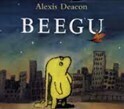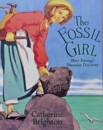Reading & Writing
 English
English
The English curriculum at Kilnwood Vale enables children to develop as strong readers and writers, which is underpinned through developing high-functioning oracy. Their English journey gives them the skills, confidence and knowledge not only to access the curriculum but prepare them to be global citizens of the future.
Reading
Children develop a life-long love of reading and will read for pleasure both in school and at home. They enjoy listening to high-quality stories and will join in with  enthusiasm. They will also be exposed to a wide range of genres and develop a breadth of vocabulary through reading different styles of books. KVPS provides opportunities to read literary heritage books as well as books that mirror their own lives and those that provide a window into other people’s worlds, ensuring their reading journey celebrates their own identity and the diversity
enthusiasm. They will also be exposed to a wide range of genres and develop a breadth of vocabulary through reading different styles of books. KVPS provides opportunities to read literary heritage books as well as books that mirror their own lives and those that provide a window into other people’s worlds, ensuring their reading journey celebrates their own identity and the diversity of our community and the wider world. Children will have a secure knowledge of phonics and apply this confidently to their reading to enable them to be confident and fluent readers. They will have a secure understanding of what they are reading, make inferences and talk in detail about a range of texts. From these foundations and the development of comprehension skills through quality-first teaching, children will leave Kilnwood Vale ready motivated and with the knowledge and skills to continue their reading journey.
of our community and the wider world. Children will have a secure knowledge of phonics and apply this confidently to their reading to enable them to be confident and fluent readers. They will have a secure understanding of what they are reading, make inferences and talk in detail about a range of texts. From these foundations and the development of comprehension skills through quality-first teaching, children will leave Kilnwood Vale ready motivated and with the knowledge and skills to continue their reading journey.
- In all year groups: Children are exposed to a collection of high-quality diverse texts, which include Pie Corbett spine books. Children are read aloud to every day, with teachers modelling clear and confident reading.
- In EYFS - Year 2: Children engage in a daily session of 'Talk Through Stories', which exposes children to a well-planned, well-sequenced whole class story that unpicks vocabulary, word meaning in context and favourite phrases. During the session, they will also be exposed to sophisticated reading skills such as predicting, summarising and making inferences. Children in Year 2 develop their reading comprehension through Read, Write Inc Comprehension sessions on a daily basis.
- From Year 3: Children engage in a daily session of 'Whole Class Reading' using carefully selected texts and extracts from the CUSP scheme of learning. During these lessons, all children will have a copy of the text - either the class book or the extract - and will be exposed to a range of reading techniques to enhance fluency and explicitly teach prosody. This links to our core curriculum driver of Oracy.
Phonics
We use Read, Write, Inc. as our phonics scheme at Kilnwood Vale. The scheme has been carefully planned to ensure phonics lessons are of high quality, engaging and repetitive to embed learning. The progression of phonics ensures that all children learn to read, gain a love of reading and extend their vocabulary. Children read decodable books which match to the teaching and learning. This ensures that children will read books which include sounds and words they have been taught, enabling them to make progress.
Writing
Children will develop a love for writing. At Kilnwood Vale we use RWI Get Writing! and the CUSP scheme of learning as tools to provide small steps of learning so that children can become enthusiastic and confident writers.
Reception and KS1 follow the Get Writing! RWI scheme, which contains a wide range of writing activities closely linked to the RWI Storybooks and Non-Fiction books . Children's writing is supported at every step from writing simple sentences to extended texts including invitations, letters, descriptive texts and non-fiction texts. Longer composition activities include oral rehearsal and role play so children can develop ideas before they write. Grammar, spelling, and vocabulary activities, which are drawn from the Storybooks texts and matched to the National Curriculum, are integrated to help children reach the higher standards. Check boxes throughout the books prompt children to proofread and review their writing helping them to make sustained progress.
. Children's writing is supported at every step from writing simple sentences to extended texts including invitations, letters, descriptive texts and non-fiction texts. Longer composition activities include oral rehearsal and role play so children can develop ideas before they write. Grammar, spelling, and vocabulary activities, which are drawn from the Storybooks texts and matched to the National Curriculum, are integrated to help children reach the higher standards. Check boxes throughout the books prompt children to proofread and review their writing helping them to make sustained progress.
From Year 1, pupils are taught writing using CUSP. The CUSP writing curriculum has been designed as a progressive, coherent yet flexible curriculum, which aims to extend, enrich and consolidate the learning of grammatical and compositional features to improve outcomes. Retrieval practice is used to solidify these new features for children to begin to use these independently in subsequent lessons.
At Kilnwood Vale, we believe that the development of literacy skills are central to improving the life chance for the children in our school and we recognise that these skills provide the foundation for all other learning. We strive to deliver a curriculum that gives the children every opportunity to become confident, literate, successful members of society with a love and deep understanding of English Language and literature.
Nursery children will use elements of T4W as part of their literacy curriculum, supporting oracy and pre-writing skills that are fundamental for children to develop before they can write.


